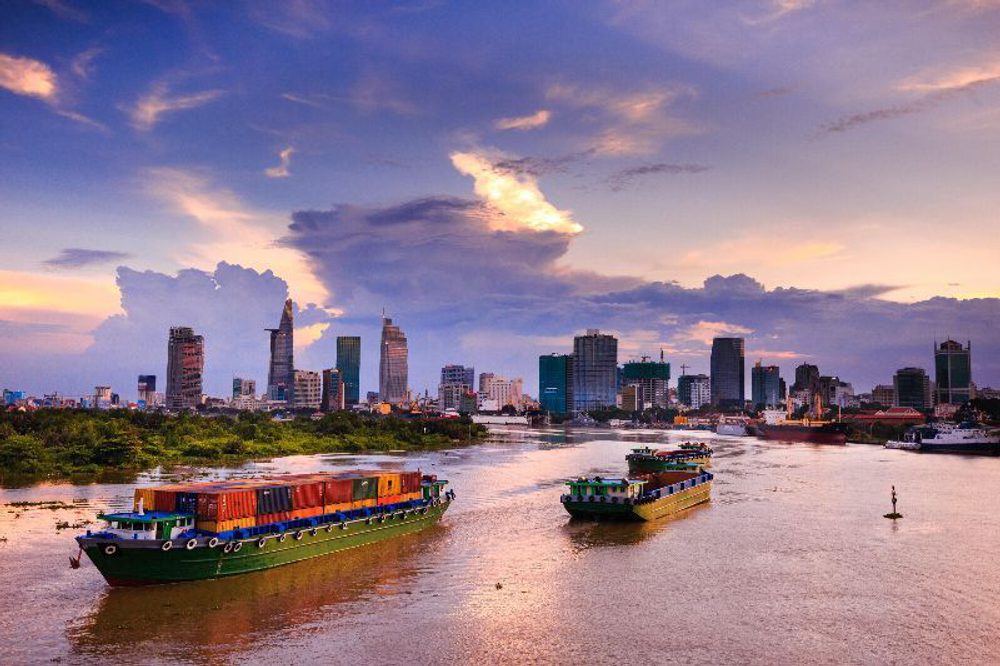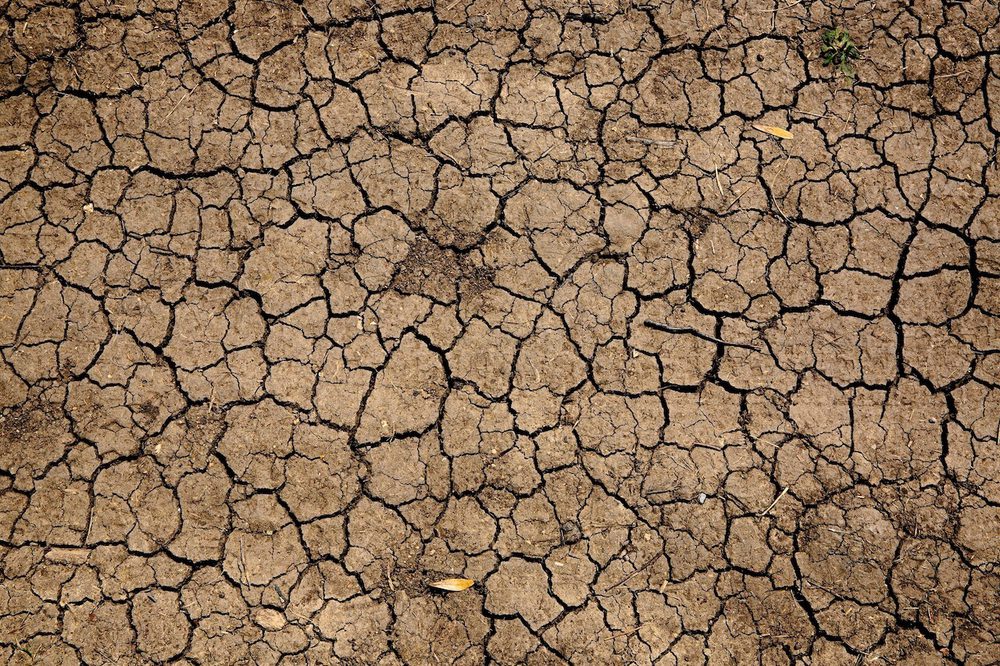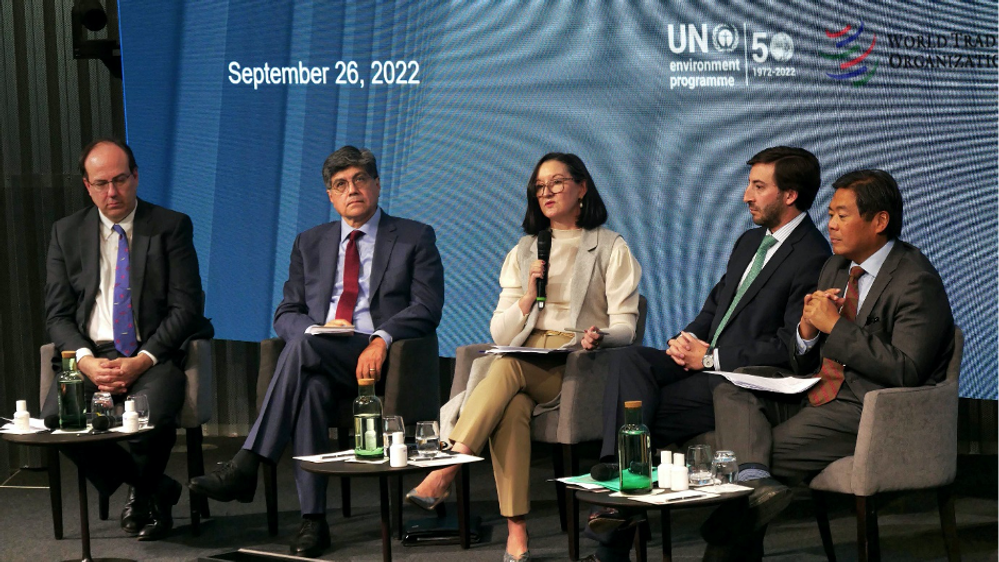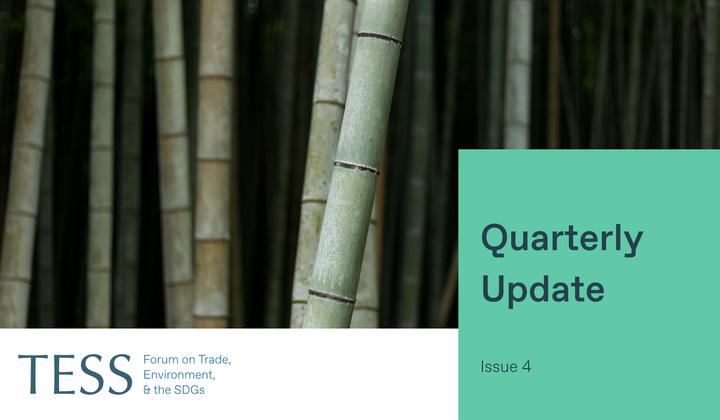Welcome to the third edition of the TESS Quarterly Update, which comes in the midst of turbulence in the world economy, geopolitical tensions, and intensifying environmental crises. As rising food and energy prices plunge millions of people into food and economic insecurity, and governments grapple with the climate crisis, the relevance of trade and trade policies to tackling these intersecting challenges is increasingly clear, as is the importance of inclusive, multilateral cooperation that supports sustainable development.
Over the past quarter, we witnessed deadly floods in Pakistan, extreme drought in China, persistent heatwaves in Europe, wildfires raging in the United States, a super typhoon in the Philippines, and heightened storms and droughts in Africa. The intensifying impacts of the climate emergency, including on trade, underline the need to ensure that trade policies support the urgent action needed to meet the Paris climate goals. As governments and businesses ramp up their efforts on climate mitigation and adaptation, international dialogue and cooperation on trade dimensions, implications, and measures will be vital.
In this context, it is encouraging to see the engagement of a diversity of WTO members in discussions of ways forward on environment, climate, and sustainable development in a range of the WTO’s regular committees and processes, as well as in member-led processes like the Trade and Environmental Sustainability Structured Discussions (TESSD), the Dialogue on Plastic Pollution, and the first meeting of the Fossil Fuel Subsidy Reform initiative. At the end of September, the WTO’s 2022 Public Forum featured an unprecedented focus on issues of environment, climate, and sustainable development, and WTO members are expected to deepen discussion of issues in the October session of the Committee on Trade and Environment and the accompanying WTO Trade and Environment week. In early December, the TESSD will host a high-level stocktaking event as a mid-way point in their efforts to produce concrete outcomes for the next WTO Ministerial Conference.
At the November 2022 United Nations Climate Change Conference (COP27) in Sharm El Sheikh, action to boost climate finance will rightly be top of the agenda. Alongside, concrete efforts to boost inclusive cooperation on trade and trade policies will be vital to support climate mitigation as well as climate adaptation, advance climate-resilient development, and address climate-related loss and damage.
On the horizon this quarter is also the first session of the UN negotiations on a legally binding treaty to end plastic pollution. TESS continues to promote cooperation on how trade policies can support the effort, including through the Dialogue on Plastics Pollution at the WTO. We will also be monitoring closely the UN Biodiversity Conference (COP15) in December to assess how trade and trade policies can support the new Global Biodiversity Framework for 2030 alongside sustainable development objectives.
What We've Focused On

Greening Aid for Trade
Aid for trade is an important vehicle for supporting developing and least developed countries in the transition towards more sustainable trade while promoting the environmental resilience and economic diversification vital for sustainable development.
At the Eighth Global Review of Aid for Trade, held on 27–29 July at the WTO and themed Empowering connected, sustainable trade, a number of sessions took up the question of how aid for trade could incorporate a stronger focus on environmental challenges and opportunities for developing countries and support a just transition to sustainable trade. At the global review, TESS co-hosted a session with CUTS International and IISD on Greening aid for trade: Priorities and pathways for a just transition to sustainable trade. A recording of the session is available. In the lead up to the event, TESS and IISD co-published a policy brief where TESS Director Carolyn Deere Birkbeck argues that greening aid for trade requires a nuanced approach that pursues simultaneous action through six complementary pathways, all guided by the sustainable development priorities and needs of developing countries. A blog derived from the paper looking specifically at least developed country priorities was published by EIF’s Trade for Development News.
These publications follow earlier TESS work on aid for trade, including a policy brief where Senior Policy Advisor Mahesh Sugathan identifies how aid for trade could be harnessed to support developing and least developed countries to address their expressed priorities and needs on trade-related aspects of the plastic pollution crisis. This paper was also adapted into a blog for the EIF.

Regional Perspectives on Trade and Climate Change Mitigation and Adaptation
A key priority for TESS is to ensure developing country perspectives on priorities for international cooperation the trade, environment, and sustainable development interface are reflected in international policy agendas and deliberations.
To enrich discussions on climate at the WTO and support developing country engagement, TESS has commissioned a series of papers exploring developing country priorities. Produced in partnership with regional organizations and think tanks, each paper is being accompanied by consultations with regional experts and delegations in Geneva. The first regional consultations focused on papers from Southeast Asia, Africa, and Latin America were convened during the quarter, with consultations on papers from the Caribbean, South Asia, and least developed countries soon to follow. To complement, TESS seized the opportunity of the WTO Public Forum to co-organize a joint working session with regional partners where speakers presented key findings from their papers. You can watch a video of the full event. Stay tuned for the release of these papers in the coming months as an input into enriched discussion among stakeholders and Geneva-based trade negotiators.

Policy Agenda for Nature-Positive Trade
The new Global Biodiversity Framework for 2030, set to be presented for consideration at the UN Biodiversity Conference (COP15), will provide a fresh reference point to examine how trade and trade-related policies can support biodiversity conservation, sustainable use, and restoration alongside sustainable development objectives.
In the run up to COP15, scheduled for December 2022 in Montreal, TESS is working to frame a nature-positive trade policy agenda for sustainable development and to identify opportunities in the multilateral trade arena to support implementation of the global biodiversity agenda. With these objectives in mind, on 13 July, we co-organized with UNCTAD, ITC, UNEP, CDB, and WTO a webinar on Nature-positive trade for sustainable development 2030. A recording of the event is available. In related work, TESS Senior Policy Advisor Marianne Kettunen is preparing a policy brief soon to be co-published by UNEP, TRADE Hub, and TESS on opportunities to promote synergies between the Global Biodiversity Framework and work on sustainable trade at the WTO.
What We're Discussing

TESS at the WTO Public Forum and Geneva Trade Week
The WTO Public Forum 2022, themed Towards a sustainable and inclusive recovery: Ambition to recovery, moved environmental issues up the WTO agenda with more than 45 sessions including a focus on the relevance of trade and trade policies to environmental challenges. This unprecedented degree of focus highlights the interest among governments, the private sector, civil society, academics, and consumers in how to shape a trading system that addresses the triple global environmental crises of climate change, biodiversity loss, and pollution and how to do so in ways that are inclusive of developing country perspectives and responsive to their sustainable development priorities.
On 26 September, immediately preceding the WTO Public Forum, the WTO and UNEP co-organized, in collaboration with TESS, the opening plenary of Geneva Trade Week 2022 on State of play and next steps on environment at the WTO: A briefing for stakeholders. Senior officials from both the WTO and UNEP highlighted the urgency of ensuring trade and trade policies are part of the solution to urgent environmental challenges. The lead chairs or convenors of the various environment processes in the WTO each provided briefings on the state of play and next steps. A video of the event is available. On 28 September, TESS organized a climate and trade breakfast that brought together a diverse group of stakeholders in Geneva for the Public Forum to share views on priorities on climate, trade, and sustainable development and identify ways forward for inclusive cooperation.
At the WTO Public Forum itself, TESS co-hosted a working session with regional partners on Trade and climate change mitigation and adaptation: Regional perspectives. At the event, a recording of which is available, speakers sought to reframe discussions on the trade, climate change and sustainable development interface by identifying key priorities for multilateral attention from the perspective of least developed countries, the Caribbean, South America, and sub-Saharan Africa. We also co-hosted a working session on International trade cooperation to address plastic pollution: Options and pathways to enhance environmental outcomes as part of our ongoing work to promote international cooperation on trade to support efforts to end plastic pollution. A video of the event is available. Finally, we co-hosted a workshop on Championing smallholders for trade equity and sustainability in the context of reforms towards more sustainable agricultural trade and practices. The event included the screening of a documentary created by TRADE Hub, which gives perspectives from Cameroonian farmers about the increasing global demand for sustainably produced agricultural commodities.
Our Quarterly Graph

WTO Bodies and Processes Where Trade and Environment Issues are Discussed
Our quarterly graph is drawn from a TESS policy brief on trade and environment at the WTO. The graph provides a schematic illustration of the range of WTO bodies and processes where environmental discussions arise, even if sporadically. The schematic also includes the three initiatives led by different subsets of WTO members that aim to provide complementary non-negotiating spaces for members to foster cooperation on trade, environment, and sustainable development.



